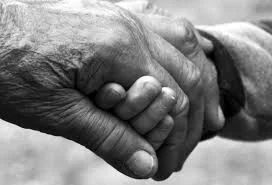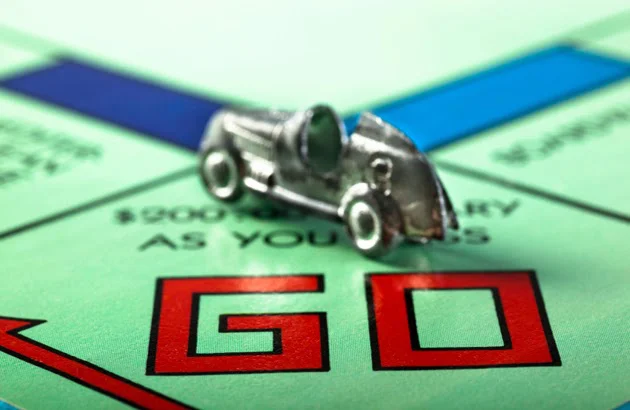Being Bourdain: Using the Comfort of Food to Better Yourself & Others
/ Troy Arnold“Comfort food.”
A phrase that many of us use to describe something delicious. Slathered and carb heavy, likely a reminder of a better, simpler time. Whether they be sweet treats or hearty meals, the idea that for just a moment, the mere act of eating this food can make you feel better, at peace, comfortable, is almost universally accepted.
Furthermore, sharing that food, that moment with others, can create a connection of tranquility and openness. A form of both vulnerability and power, wrapped in food and drink. It is that duality, that projection, and protection of self that Anthony Bourdain was able to capture through his travels and writing in a way that made the world seem simultaneously vast and familiar.
I’d never given much thought to Anthony Bourdain. The “celebrity chef” with a penchant for profanity and turns of phrase. To me, a young twenty-something at the time, he was a cool guy who seemed to be living the dream. Who wouldn’t want to travel the world, eating great food and be paid for it? But that was the surface. What Bourdain was doing, and what many have pointed out, was bridging gaps through one of the most basic connections; hey, we all gotta eat.
It was an episode of his show, Parts Unknown, when Bourdain traveled to Armenia, a small country seemingly beset on all sides by opposing forces, recovering from war and genocide, that I really began to recognize the connections Bourdain could build, while seemingly doing nothing at all. The episode featured Serj Tankian, the lead singer of System of a Down, an Armenian born in the U.S., who once struggled with his connection to his homeland. A place he’d only heard stories of, yet made up so much of who he was as a person.
It was over a series of lavish, and native meals that he and Bourdain broke down what it meant to be not only Armenian in the US, but to be Armenian in Armenia. Revealing how much of their identity was survival, and love in the face of great adversity. Toward the end of this episode, the hosts lead Bourdain through a series toasts, all related to resilience and good fortune for the future. Then they dug in.
Comfort food has been my enemy for the better part of a year now. Stress at work often leading to a stretch on the couch, getting in some "Netflix and Chil"l time with a large bag of chips and some bourbon. It’s just as exciting as it sounds. I’d never go so far as to break plans to spend time alone, but I’d stopped looking for those connections outside of my home.
Cooking became a mind-numbing trudge through simple creations. Eating, just the act of keeping myself alive long enough to make it to the next meal. If a copy of The Joy of Cooking fell into my lap, I’d have seen it as some satirical take on the single male existence, not “fundamental resource for any cook” that Julia Child once described.
Sustenance became a chore, not room for exploration and connection. I’d lost my Bourdainian lust for life. The first step to getting it back; learning to love cooking again. The second step, sharing that with others.
To be clear, this isn’t a denigration of introversion. Everyone needs their time alone. This is, instead, the celebration of coming together over base, common ground, and using that opportunity to bring out something better in yourself and others.
Sharing a meal is just as much an opportunity to talk, as it is to listen. When Bourdain would go to places like The Bronx, Houston, or Vietnam, he would always let the city and its residents tell their story. It’s a skill we could all use, especially in a time when it feels like we’re drifting further apart.
If the dream is to live a life like Anthony Bourdain seemed to have on television, the goal is to bring that to my tiny corner of existence. It can start with grabbing some “strange” ingredients at the grocery store, and wind up with me asking a friend out for drinks at a bar we’d otherwise never enter. Or better yet, going to that bar alone, and coming out with a perspective and story I’d never have heard.
The man wasn’t perfect, but the outlook was one to admire.
Who does food make you feel most connected to?
Share your comments at the bottom of the page.
Whatismyhealth © 2018
A recent chain of events that has led me to, dare I say it... feel good about myself again.
Holiday photo ops carry a mostly nice sentiment, but can also be a reminder of our body insecurities.
Do you ever just read or hear something and immediately the connection you have with it is soul-affirming?
When do children stop trying being themselves and start striving to be like others, judging those who are not alike?
I still feel the need to have an extra change of clothes, or avoid being sweaty for extended periods of time around other people.
You never know who deals with the same things you do. Anything you’re going through can be worked through.
Every woman looks differently, grows babies differently, and experiences pregnancy and childbirth differently.
My mental and physical health remains in a constant state of limbo; some days are better than others.
We may not get back to where we once were, but we can fight to get closer to where we want to be.
What rings true for so many parents is the desire to protect our children from the things we’ve struggled with ourselves.
It’s amazing how much of a difference facial hair can make in terms of the way we view someone’s physical appearance.
Senior citizens are deserving of more respect, dignity, and reverence than they are given.
Getting fit is hard. Even tougher is getting back into shape after falling out of a routine.
Would our perceptions of ourselves change if the things we were watching told us differently?
You can choose to see the beauty and strength in yourself and others, because we all have it.
After a few shirts start to stretch, you realize you may have put on a little more than “a few pounds.”
I’ve spent much of my life being uncomfortable with my body, but what I have learned isn’t for nothing.
Remember when movement consisted of having fun? This is what movement should be like, always.
The things that negative body image steals from us on a daily basis is something we shouldn’t have to accept.
We can’t help how much space we take up, but we can all be considerate of each other’s space.
On the day when we celebrate freedom, it can be a struggle not to be trapped by the urge to overeat.
There have been a lot of struggles in my life, especially when it has come to loving myself.
It’s hard to look in the mirror and like what I see, but I am beautiful because I decided that I am.































You have to find your own reasons to overcome the negative way you see and feel about yourself.